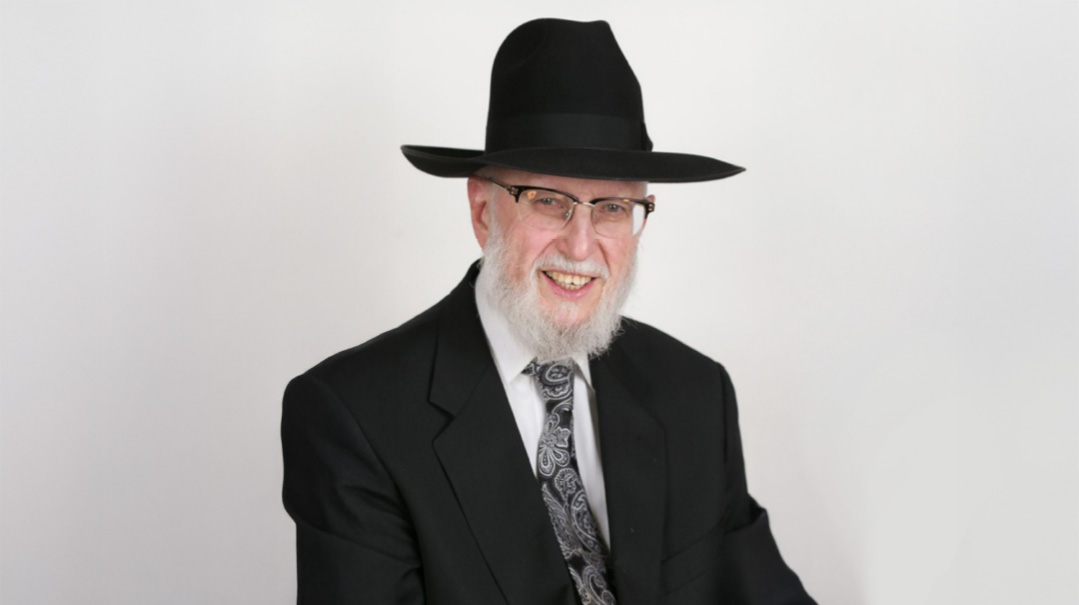Changing Lives for Eternity
| January 7, 2025Remembering Rav Shlomo Zalman Singer, the founding rosh yeshivah of Passaic Torah Institute (PTI)

The Background
Whenever my wife and I visit the United States, we try our best to visit our cousins, Rabbi Boruch and Rivka Bodenheim in Passaic, New Jersey. Rabbi Bodenheim was, until very recently, the assistant rosh yeshivah of Passaic Torah Institute (PTI), working alongside his father-in-law, Rav Shlomo Zalman Singer, the founding rosh yeshivah.
Rav Singer recently passed away at the age of 91 (his shloshim falls out on the 13th of Teves). Rabbi Bodenheim shared memories from his many years teaching Torah at his father-in-law’s side.
Rav Shlomo Zalman Singer was a legend in Passaic. He came to the city in 1966, when he was hired to serve as the chazzan at Adas Israel. He also ran the local Talmud Torah and Hebrew school. Passaic was then home to many Jews, but only a handful were Orthodox, so Rabbi Singer established NCSY for the public school kids.
Rav Meir Stern established his yeshivah in Passaic in 1973. Rabbi Singer knew him from BMG and went out of his way to attend his shiurim for the next 25 years. He then taught those shiurim to anyone capable of understanding them. Rabbi Singer retired from chazzanus in 1996 and opened Passaic Torah Institute (PTI), which offered a wide range of shiurim geared to working men.
Rabbi Singer spread Yiddishkeit in Passaic for close to six decades, influencing thousands of people. Close to 300 people currently learn at PTI at least once a week.
What follows is the reminiscence of my cousin, Rabbi Boruch Bodenheim, who is Rabbi Singer’s son-in-law.
There was nothing typical about my shver. He had many talmidim. One day, he received a call from the father of a longtime talmid.
“Rabbi Singer,” the man said. “My 19-year-old granddaughter just returned from seminary. Can you please help her find a shidduch? I’m not young and I want to see my grandchildren get married and start families of their own.”
Rabbi Singer assured the man he would help. As soon as he ended that call, my shver dialed the number of Rav Malkiel Kotler, the rosh yeshivah of BMG. When Rav Malkiel answered the phone, my shver introduced himself, explaining that he had been a close talmid of Rav Aharon, and he asked Rav Malkiel for help in finding a shidduch for this girl.
Rav Malkiel promised to help, and he called Rabbi Shlomo Lewenstein (one of the big shadchanim in Lakewood) and explained the situation. Rabbi Lewenstein called the girl’s mother a short while later and advised her to send her daughter the next day to a private meeting of shadchanim.
Although the girl’s eventual shidduch came about through a different channel, nobody who heard the story could forget the extent my father-in-law went to help a talmid.
Aharon, a young, single baal teshuvah from San Antonio, Texas, came to Passaic a few times in the ’90s. After attending some shiurim in the yeshivah, he felt an instant connection with Rabbi Singer and decided to move to Passaic. Since Rebbetzin Singer was a realtor, Aharon asked her to look for a house for him to buy in the yeshivah’s neighborhood.
So when a suitable house came on the market during Chol Hamoed Pesach, Rebbetzin Singer called him up and told him to come right away to see it, before someone else grabbed it.
Aharon apologized and said it was too much trouble to fly to Passaic on such short notice.
Rebbetzin Singer was a laid-back kind of person and didn’t push him further. But her husband overheard the conversation and immediately called the young man.
“Aharon, this is Rabbi Singer calling. I’m talking to you now as your rebbi. You need to come out here right away. You cannot wait until after Pesach. You need to get on a plane and come see this house. Your Torah learning is at stake.”
There was no way Aharon would turn down his rebbi.
“I booked my ticket for the next day,” he later said, “and flew out to Passaic to look at the house. Rebbetzin Singer was right — it was just what I needed. I made an offer and flew back to Texas that night. I ended up purchasing the house.”
And just like that, another life was changed for eternity.
Rav Singer’s son, Rabbi Tovia Singer, told me of an encounter he had at the PTI dinner one year with an unfamiliar, distinguished-looking man who turned out to be a rosh kollel from Eretz Yisrael. Reb Tovia asked the man how he had come to be taking part in the dinner.
The man explained that he was there because Rav Singer had saved him.
“It happened a short while after my family moved to Passaic. My family was not religious. One Shabbos morning I was standing on the corner smoking a cigarette. Rav Singer passed by and warmly wished me a good Shabbos. I returned his greeting. For Rav Singer, that was already a foot in the door.
“‘Would you like to learn Torah with me?’ he asked. I politely declined.
“‘Well, would you care to join us for a Shabbos seudah?’
“That was a different story. My family and I became regular guests at your parents’ home. I grew close with Rav Singer and eventually became shomer Torah u’mitzvos and went off to yeshivah. Today I’m a rosh kollel. Your father’s Shabbos invitation changed all of our lives.”
MY
shver used to be a driver for Rav Moshe Feinstein. Once, my brother-in-law got in trouble at school and the principal kicked him out. My father-in-law was driving Rav Moshe that day, and he mentioned to the gadol hador that his son had just been expelled from yeshivah.
Rav Moshe was incredulous. “What?! A Jewish boy, thrown out of yeshivah? Please take me there right now.”
They pulled up in front of the yeshivah, and when the rebbeim saw Rav Moshe emerging from the car, everyone ran outside to greet him.
After greeting everyone with his trademark warmth, Rav Moshe asked to be taken to the principal’s office.
“We are so honored that the Rosh Yeshivah came to visit us,” the principal said. “How can we be of help?”
Rav Moshe asked the principal, “Is it true that you threw a boy out of the yeshivah?”
The principal was taken aback and tried to explain the reasoning behind the decision — but Rav Moshe would have none of it and demanded that the boy be allowed back. Of course the principal acquiesced.
My shver would go on to cite this story many times. Whenever he heard that a boy had been thrown out of yeshivah, he would contact the principal and tell him this story. It always worked.
Besides making sure all boys had places to learn, whenever he saw that a boy was struggling, Rabbi Singer would offer to learn with him one-on-one.
“Rabbi Singer taught me to love learning Torah,” one talmid said. “He used to learn with me every week for well over an hour. Before I met him, I couldn’t stand learning. Today I love learning Torah because of him.”
When Rabbi Singer was in the hospital, one of his old-time talmidim would stay with him when needed. He took a shift on a recent Friday. Afterward, he called me to say, “This Shabbos is my Shabbos Bar Mitzvah. Fifty-one years ago, Rabbi Singer taught me how to lein. Today at the hospital, I leined for him again.”
On the last Friday of Rabbi Singer’s life, the same talmid went again to stay with him at the hospital. When he came into the room, he saw that Rabbi Singer’s yarmulke had fallen under the bed. He crawled under the bed to retrieve it, brushed it off, and put it back on his rebbi’s head.
Rabbi Singer passed away that Motzaei Shabbos.
As he drove home from the hospital, the talmid had the following thought: “I didn’t grow up in a frum family. It was Rabbi Singer who put a yarmulke on my head. This Friday, I had the zechus of putting a yarmulke on my rebbi’s head, just before he passed away.”
The circle had been closed.
(Originally featured in Mishpacha, Issue 1044)
Oops! We could not locate your form.







